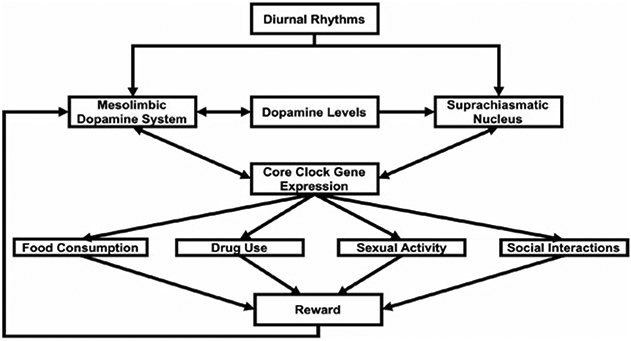Fig. 4.2.

A schematic representation of the brain's reward system in relation to circadian rhythms. Diurnal rhythms of the mesolimbic dopamine system and suprachiasmatic nucleus directly influence the activity of these brain regions. Rhythmic dopamine levels influence the activity of the mesolimbic dopamine system and suprachiasmatic nucleus. The activation of dopamine receptors in these brain regions alters core clock gene expression. The expression of core clock gene affects rewarding behaviors including food consumption, drug use, sexual activity, and social interactions, which activate the mesolimbic dopamine system
